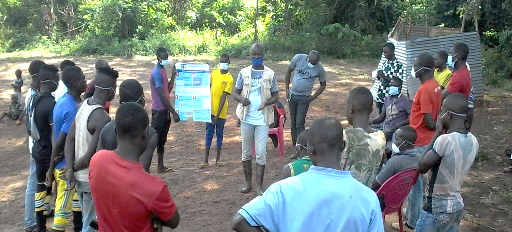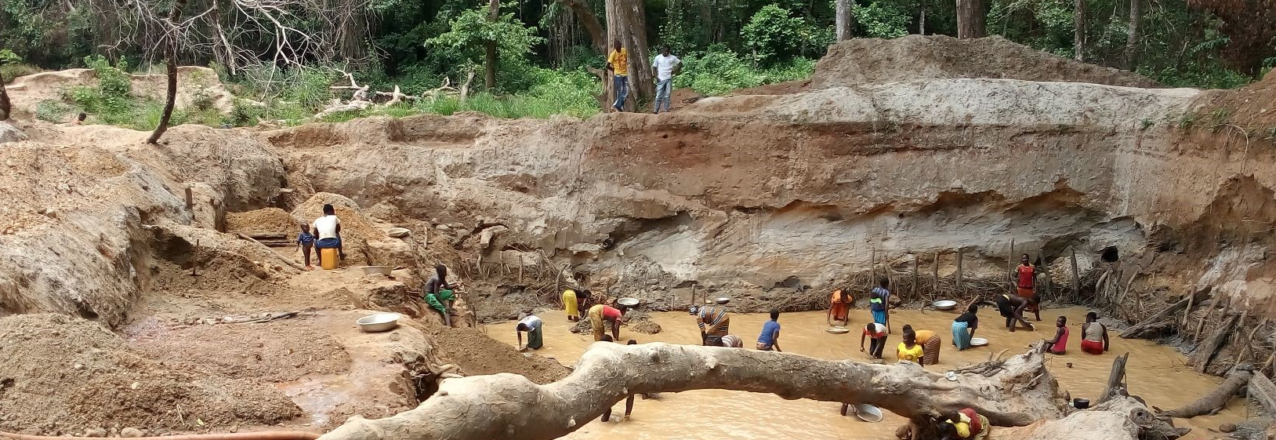The USAID-funded Artisanal Mining and Property Rights (AMPR) project has sensitized over 1,243 (including 266 women) artisanal miners and mine site owners on how to officially become artisanal miners according to Central African law. AMPR Community Development Specialists and Community Mobilizers conducted the sensitization sessions jointly with Regional Officers from the Ministry of Mines and Geology and members of the Local Peace and Reconciliation Committees that AMPR supported the creation of in partnership with the Ministry of Humanitarian Action and National Reconciliation. The teams held focus group discussions in 63 mining communities in the Kimberley Process compliant zones of Berberati, Boda, Boganda, Carnot, Gadzi, and Nola, using a training poster and corresponding guide developed by AMPR. 400 posters titled How to Become an Artisanal Miner in Accordance with the Law were displayed at the Regional Mining Departments, town halls, markets, and mine sites in the six compliant zones.

In May 2019, AMPR conducted a Knowledge, Attitude, and Practices (KAP) study involving 341 artisanal miners. The results revealed that only 4% (n = 341) knew the right price to obtain a license to become an artisanal miner. Some explained that they had paid more than the official price due to lack of knowledge. Others paid inflated sums to their peers to obtain the licenses since they were not aware of the formalities. On this basis, AMPR set out to produce poster and discussion guides with questions and awareness-raising messages inclusive of all points in the supply chain, such as government actors, buying houses, collectors, pit owners, and artisanal miners.
These trainings enlightened the mining communities on how, when, and where to obtain an artisanal mining license and encouraged artisanal miners to pay their licenses as required by the law without exploitation by intermediaries who drive up the price. AMPR will conduct a second KAP in Q2 of 2021 to determine whether awareness of artisanal miners about this and other laws has increased since the previous survey.


